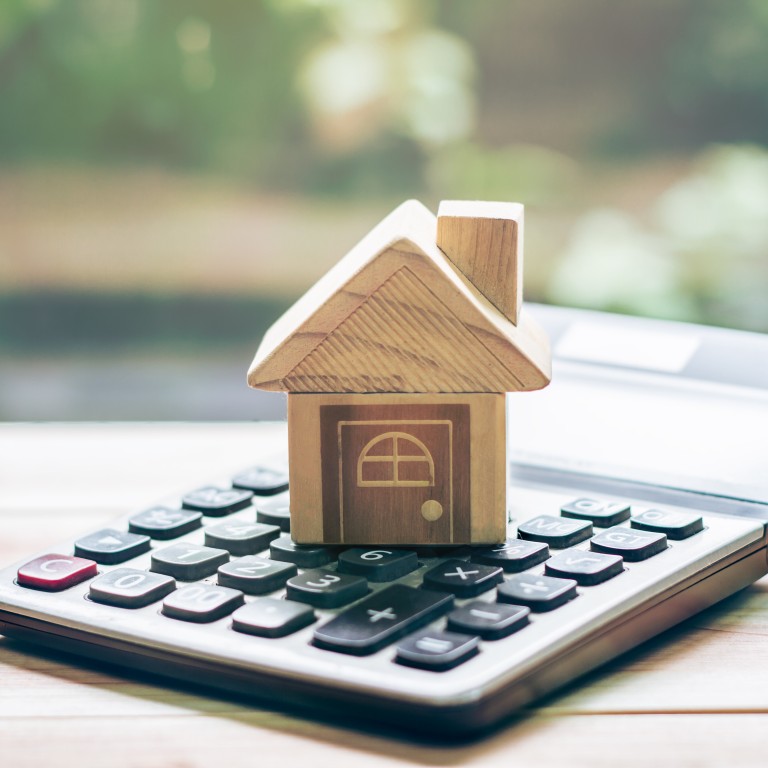
Hong Kong banks ease up on mortgage approvals as vaccination programme boosts homebuyers’ confidence
- A strong start to homebuying activity portends well for the housing and mortgage markets, suggesting it is likely hold up well for the rest of the year
- With activity picking up, lenders are looking to approve more mortgage loans, slashing interest rates and offering cash rebates to gain market share
While the spark may not yet be evident in transaction figures which tend to lag in reporting, the mortgage referral industry is already feeling the first wave of heat. Since the end of the Lunar New Year holiday, there has been a surge in mortgage enquiries compared to the same period last year. If history is any guide, such a strong start to home-buying activity portends well for the housing and mortgage markets, suggesting it is likely hold up well for the rest of the year.
Amid the home-buying frenzy, banks start to jump on to the bandwagon. Lenders relax the grip on mortgage approvals and begin to incrementally slash interest rates and offer better cash rebates. Banks were particularly stringent in accepting and approving mortgage applications last year, but this year, more banks seem to want a bigger slice of the residential mortgage pie.
Being at the forefront of the mortgage market scene, many banks have adopted a more aggressive approach, asking for more referrals. This is a huge difference compared to last year when banks would turn away our referrals, suggesting we refer deals to other lenders as some of them sought to downsize their mortgage portfolio.
So where do we stand right now regarding mortgage pricing? Based on the latest industry figures, the best deal in town is Hibor+1.3 per cent, capped at 2.5 per cent, with a cash rebate of around 1.3 per cent. With the one-month Hibor hovering at around 0.15 per cent, that translates into an effective mortgage rate of around 1.45 per cent. With rates not expected to rise tremendously in the next two years, it is not surprising that potential homebuyers have started to flock to buy apartments and houses as the vaccine hope unleashes pent-up demand.
While the interest rates are generally attractive, not all borrowers can obtain the best mortgage pricing. Mortgage rates and rebates vary according to various factors including the loan amount, loan-to-value (LTV) ratio, and whether the borrower has used other services provided by the bank – such as payroll services or has a “premium” account.
As a rule of thumb, a bigger loan size tends to get a better rate and cash rebate because the bank’s overheads in administering a bigger loan are the same as a smaller loan. For a loan size of under HK$4 million (US$515,000), the best rate of Hibor+1.3 per cent is harder to find in the market. Rates at most banks hover around Hibor+1.4 per cent for such an amount. In addition, a lower cash rebate is likely to be offered at below 1 per cent.
However, some smaller banks who want business may offer Hibor+1.3 per cent and a 1 per cent cash rebate, even for a loan amount of under HK$4 million.
Unlike other markets across the region and the world, Hong Kong banks have greater autonomy in setting the mortgage price, and so shopping around for the best rate is the most effective way to cut your long-term mortgage payment. From my experience, I advise that you not only consult the bigger banks, but also try small and medium-sized banks. Trust me, you may get sweeter bargains.
The LTV ratio also affects mortgage pricing. If your loan is above 60 per cent of the property value, many banks offer additional incentives. However, be aware that you would need to pay mortgage insurance on LTV ratio above 60 per cent which can be as high as 5 per cent for a 90 per cent financing (minus an insurance discount). Hence, if you can afford a 40 per cent down payment, it is better to not get a higher LTV loan just for the sake of obtaining a small cut in interest rate or an incremental cash rebate.
Despite banks being more aggressive than last year in approving new mortgage applications, many banks are still shying away from the refinancing market. One main reason is that the downward rate cycle in the past few years has spurred tremendous refinancing activities, as borrowers transfer their mortgage to other banks to obtain a lower rate and cash rebate.

Refinancing borrowers are perceived as “disloyal” customers by banks as they tend to move out their mortgage once the penalty period ends with the purpose of earning cash rebates from other banks. As such, banks’ relationship with these customers would only last for two years, which is the average period of penalty.
For refinancing, the current predominant rate is around Hibor+1.4 per cent to Hibor+1.45 per cent with a cash rebate of under 1 per cent. Some small banks prefer the refinancing market and can offer better deals, but with additional conditions such as opening a premium account, extended penalty period, or excluding a mortgage-linked account.
Ironically, some banks can offer the best rate for refinancing, but only if the borrower has not been involved in other refinancing activities in the past four years, which can be seen as an amusing way to shield themselves from refinancing shoppers.
Raymond Chong is managing director at mortgage referral brokerage StarProp Agency

